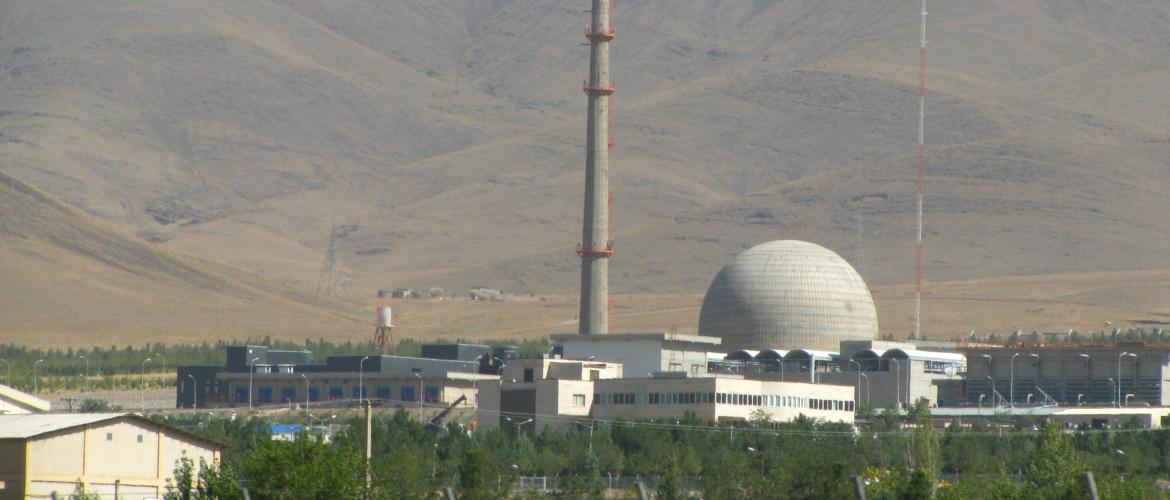Iran delivers an ultimatum
May 17, 2019 | Expert Insights

Background
In 2015, Iran agreed to a long-term deal on its nuclear programme with the P5+1 group of world powers - the US, UK, France, China, Russia and Germany, called the Joint Comprehensive Plan of Action (JCPOA). President Trump, critical of the JCPOA, withdrew the US from the agreement in 2018. Sanctions were re-imposed on Iran shortly after that, with both sides unwilling to return to the negotiation table. Iran's economy has struggled since US sanctions came to effect in mid-2018, and as a result, nearly half of its imports and exports have halted. Tensions between Iran and the US has steadily heightened in recent weeks, especially after Washington announced no fresh sanction waiver will be issued for Iranian oil imports to eight countries, including India.
The US recently designed the Islamic Revolutionary Guard Corps (IRGC), a terrorist organisation and declined extensions to waivers for Iran's energy customers to continue purchasing its oil. While it expanded exemptions to most of Iran's civilian nuclear program, it did not extend two critical waivers that sold nuclear materials to foreign countries. These waivers previously allowed Iran to export heavy water surpluses to Oman and permitted a swap of low-enriched uranium that exceeded 300 kilograms for yellowcake uranium. The US has also deployed military presence in the Middle East aimed at deterring Iran and its allies.
Analysis
Iran recently announced that it would relax internal restrictions on its nuclear program, threatening moves that could breach the 2015 JCPOA. The announcement was made on the same day that the US withdrew from the JCPOA in 2018.
Iran warned that it would no longer limit low-enriched uranium stockpiles to 300 kilograms or limit heavy water stockpiles to 130 metric tons. Iran has given the remaining signatories - Germany, France, the UK, the European Union, Russia and China - 60 days to fulfil their commitments to the oil and banking sectors. Iran believes that it implemented the JCPOA in return for these commitments. Iran's compliance with the JCPOA has been vetted by several international agencies, including an intrusive probe by the UN.
The Trump administration believes that the deal is flawed because it is not permanent and it does not address the country's missile program. Washington also believes Iran has meddled in the domestic affairs of regional countries. Washington intends to aggravate Iran's economic situation to such an extent that it sparks an internal uprising. The Trump administration believes that this would weaken Tehran so that it would be forced back to the negotiating table. This would allow the US to incorporate their concerns into a new enforceable deal.
When Washington did not extend the civilian nuclear program waivers, it forced Iran to either turn off its civilian nuclear program or violate the JCPOA itself. If the civilian nuclear program continues to run, Iran would produce more heavy water and low-enriched uranium than the JCPOA mandated; Iran would need to move them outside its border to maintain compliance.
Tehran believes that it must respond to American provocations against the JCPOA to ensure its credibility and to gain leverage if there are to be future talks. By permitting 60 days, Iran has allowed European countries, who are more likely to preserve the JCPOA, time to respond. This helps portray the country as rational, reasonable and restrained, forced to act because of dire economic conditions.
European countries rejected the "ultimatum" from Tehran, saying that they wanted to preserve the JCPOA. A statement issued jointly by the European Union, Britain, France and Germany, said they were going to assess Iran's compliance to the deal. However, the group signalled that they understood Iran's economic grievances despite assurances by international agencies that the country was adhering to the JCPOA. The countries said that they were determined to continue legitimate trade with Iran. One possible method to continue trade despite American sanctions is through mechanisms that would enable non-dollar business with Iran. However, the US is likely to sanction any party using this mechanism. Another method would be to help Iran avoid an economic or food crisis by organising an oil-for-food program, similar to the one the EU has with Iraq.
Assessment
Our assessment is that all current signatories of the JCPOA are looking to continue the implementation of the accord. However, the US, believing the JCPOA to be flawed, is actively seeking to force Iran back to the negotiation table. Iran's economic situation is severely impacted by American measures, forcing it to suspend its compliance with the agreement.
We estimate that the US will institute more sanctions on Iran's exports and imports that go beyond the scope of current ones. The current sanction regime only prohibits deals with Iranian entities on the US Treasury Department's list; the Trump administration is likely to target products and raw materials as well. We feel that as the US further targets the JCPOA, Tehran might partially break with the treaty by holding on to stockpiles of excessive uranium and heavy water used in nuclear reactors.
Image Courtesy - Nanking2012 [CC BY-SA 3.0 (https://creativecommons.org/licenses/by-sa/3.0)]








Comments